The ‘Hyperactive Hive Mind’
January 3, 2023I don’t know about you but I’ve definitely felt in the past that I’ve been ‘spinning my wheels’ – on many an occasion – writing and responding to emails to the point of exhaustion and yet not necessarily feeling a sense of great satisfaction at a “job well done” nor reaping the anticipated rewards of such efforts. Personal circumstances and the paradigm shift that the pandemic engendered, enabled me to step back from the world of e-mail. I still used it but a lot less and I currently use e-mail a bit more than in 2020 and 2021, so I haven’t returned to pre-pandemic levels of electronic mail activity. Despite Cal Newport’s book ‘A World Without Email’ appearing to be a manifesto to cut loose – returning to the days of old before e-mail was mainstream (or used just to send the occasional random joke or cat pics) – the American Professor’s work here is an exploration of the research available explaining the impact of e-mail upon our minds and our relationships with others, especially within the work setting. (Read Newport’s ‘Digital Minimalism’ for his thoughts on e-mail and social media and the subsequent impact upon our personal relationships, including with ourselves!).
So, what is the ‘hyperactive hive mind’ and who cares – isn’t e-mail just making communication easier and better overall? ‘Email isn’t additive; it’s ecological. The office of 2021 is not the office of 1991 plus some extra capabilities; it’s instead a different office altogether – one in which work unfolds as a never-ending, ad hoc, unstructured flow of messages, a workflow I named the hyperactive hive mind. We didn’t used to work this way, but today, now thoroughly entangled in the hive mind’s demands, we find ourselves crushed by shallow busyness and struggling to get important work done, all the while feeling increasingly miserable.'(1) Within professional environments that have been forced to develop remote and hybrid ways of working it could be argued that e-mail is more valuable than ever, and yet Newport implores us that ‘to get the full value of attention capital, we must take seriously the way we structure work. This doesn’t stifle the autonomy of knowledge workers, but instead sets them up to make even more out of their skill and creativity.'(2) As a music professional my career thus far has been fiercely independent, whilst being able to be and to offer space for authentic creativity is literally “my jam”! However, autonomy without a well-considered structure may not have enabled me to be as effective as I possibly could have been. Reading Newport’s book has helped me to understand that I am not the only creative professional to struggle and that the lack of innovation overall within ‘knowledge work’ is partially to blame, with the advent and ascension of e-mail providing perhaps more of a challenge to necessary and long overdue innovation than we may believe.
I am keen to explore opposing research – as a Masters student it is important to demonstrate critical thinking skills but – for the purposes of this LinkedIn article – I have to admit that Newport’s research just seems to articulate so well what I have been unable to, because I only have my singular experience as a reference point. How about you – does e-mail feel like a gift or a burden? Have you got a system in place where you’re not checking e-mail ‘on the regular’ but are being extremely systematic and strict in your approach to e-mail usage in your work (including when you’re not ‘in’ work)? Or – like many – are you frustrated by your inbox(es) without feeling like you have the time to even consider how to change things?
I’ll leave you with Newport’s Deep Work hypothesis, which comes from a book of the same name – something to ponder on perhaps when we consider our relationship with e-mail and our individual value in the workplace – ‘the ability to perform deep work is becoming increasingly rare at exactly the same time it is becoming increasingly valuable in our economy. As a consequence, the few who cultivate this skill, and then make it the core of their working life, will thrive.'(3)
Quotes:
(1) & (2) A World Without Email, Cal Newport (2021)
(3) Deep Work, Cal Newport (2016)








